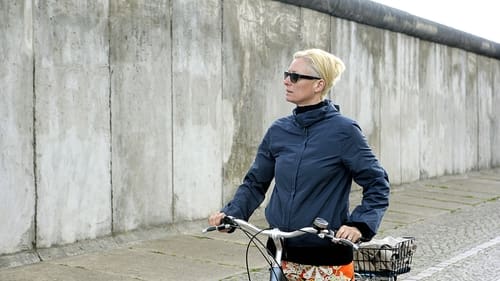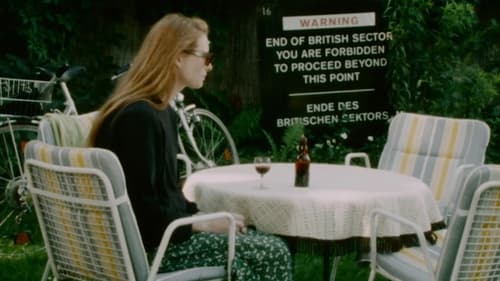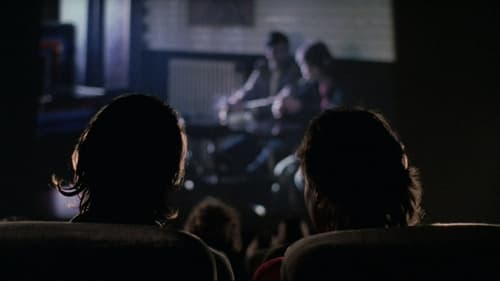Cynthia Beatt
Nacimiento : 1949-11-12, Jamaica

Narrator
"Constant" is a journey through the social and political histories of measurement. For most of recorded history, the human body was the measure of all things. “Constant” asks what led measurement to depart from the body and become a science unto itself. The film explores three shifts in the history of measurement standardization, from the land surveying that drove Early Modern European land privatization, to the French Revolution that drove the Metric Revolution, to the conceptual dematerialisation of measurement in the contemporary era of Big Science. Each chapter traces the relationship of measurement standardization to ideas of egalitarianism, agency, justice, and power. Cinematic and technical images that begin as products of measurement systems are stretched beyond their functions to describe the resistance of lived experience to symbolic abstractions.

Director
A Glasgow woman inherits a house in Berlin and has her eyes opened

Writer
In 1988 Cynthia Beatt and the young Tilda Swinton embarked on a filmic journey along the Berlin Wall into little-known territory. The film CYCLING THE FRAME is now an unusual document. 21 years later, in June 2009, Beatt & Swinton re-traced the line of the Wall that once isolated West Berlin. THE INVISIBLE FRAME depicts this poetic passage through varied landscapes, this time on both sides of the former Wall.

Director
In 1988 Cynthia Beatt and the young Tilda Swinton embarked on a filmic journey along the Berlin Wall into little-known territory. The film CYCLING THE FRAME is now an unusual document. 21 years later, in June 2009, Beatt & Swinton re-traced the line of the Wall that once isolated West Berlin. THE INVISIBLE FRAME depicts this poetic passage through varied landscapes, this time on both sides of the former Wall.

Producer
The whole world in one film: Robert, a young Dane, is shanghaied in Marseille, and via Acapulco he is abducted into the South Pacific. There he kills his father and seduces his mother. Then he explores the changing world. The end finds him in a Polynesian village, where the chief bestows him with a girl of his age-class. A novel of adventure, a novel of love, also an oratory of some sort.

Set Decoration
The whole world in one film: Robert, a young Dane, is shanghaied in Marseille, and via Acapulco he is abducted into the South Pacific. There he kills his father and seduces his mother. Then he explores the changing world. The end finds him in a Polynesian village, where the chief bestows him with a girl of his age-class. A novel of adventure, a novel of love, also an oratory of some sort.

The whole world in one film: Robert, a young Dane, is shanghaied in Marseille, and via Acapulco he is abducted into the South Pacific. There he kills his father and seduces his mother. Then he explores the changing world. The end finds him in a Polynesian village, where the chief bestows him with a girl of his age-class. A novel of adventure, a novel of love, also an oratory of some sort.

Director
The eponymous party is hosted by Queenie and Burrs, long-term lovers who are rapidly growing apart.

Narrator
Producción, registro y consumo son las tres pautas del mercado que también regulan las posibilidades de visualización del cine. La imagen y su producción: eso es lo que aparece en este documental. La historia de la fotografía aérea contada a partir de su acto de instrumentación como herramienta de espionaje, registro y control de los bombardeos. La imagen y la guerra entrelazadas mortalmente. En efecto, la imagen en su conjunto, la imagen mecánica, la fotografía, el cine, el vídeo, la televisión, etc., las “nuevas tecnologías de la imagen”, muestran claramente la instrumentación de un dispositivo de dominio y control, primero de los movimientos y los gestos, esto es, del orden de lo corporal, y luego del pensamiento, que busca ahora predecir, adelantarse, al hecho, lo que equivale a decir, en parte, a construirlo en un determinado sentido.

Director
In 1988, Tilda Swinton toured round the Berlin Wall on a bicycle - starting and ending at the Brandenburg Gate - accompanied by filmmaker Cynthia Beatt. As Swinton travels through fields and historic neighborhoods, past lakes and massive concrete apartment buildings, the Wall is a constant presence.

Writer
In 1988, Tilda Swinton toured round the Berlin Wall on a bicycle - starting and ending at the Brandenburg Gate - accompanied by filmmaker Cynthia Beatt. As Swinton travels through fields and historic neighborhoods, past lakes and massive concrete apartment buildings, the Wall is a constant presence.

Director

Prostituierte
Computer operator Faber works on securing computers for big companies and banks. His private life is rather dull until he meets a strange women, Juliet and falls in love. Her friend convinces Faber to exploit his knowledge to rob a bank.

An architect is assigned to modernize a squatted house in the Kreuzberg district of Berlin. But then he meets a young student who is member of a grassroots initiative trying to preserve the quarter. He falls in love with her, although this puts him into conflict with his job. Following his heart, the architect soon changes sides and supports the inhabitants in their struggle against the real estate speculators.

This film with a marked ethnographic nature, which was filmed without a pre-established plan and with a script that crosses the lines of documentary and fiction, tells the story of a group of five Germans who arrive on a remote island in the South Pacific called Parapara and belonging to Vanuatu. Their aim is to prepare a publication on the lives of the inhabitants of this remote island. The tasks were personally assigned: one would study the language, another would study the fauna; another the traditions, institutions and family systems; another the plants and another the songs and stories. However, the blind trust in the western scientific objective clashes head-on with the values and customs of the natives. Therefore, from the very beginning, the head of the tribe does not cease to ask and express his surprise regarding some foreigners “who have not come to rob his land”.

Producer
This film with a marked ethnographic nature, which was filmed without a pre-established plan and with a script that crosses the lines of documentary and fiction, tells the story of a group of five Germans who arrive on a remote island in the South Pacific called Parapara and belonging to Vanuatu. Their aim is to prepare a publication on the lives of the inhabitants of this remote island. The tasks were personally assigned: one would study the language, another would study the fauna; another the traditions, institutions and family systems; another the plants and another the songs and stories. However, the blind trust in the western scientific objective clashes head-on with the values and customs of the natives. Therefore, from the very beginning, the head of the tribe does not cease to ask and express his surprise regarding some foreigners “who have not come to rob his land”.

Writer
This film with a marked ethnographic nature, which was filmed without a pre-established plan and with a script that crosses the lines of documentary and fiction, tells the story of a group of five Germans who arrive on a remote island in the South Pacific called Parapara and belonging to Vanuatu. Their aim is to prepare a publication on the lives of the inhabitants of this remote island. The tasks were personally assigned: one would study the language, another would study the fauna; another the traditions, institutions and family systems; another the plants and another the songs and stories. However, the blind trust in the western scientific objective clashes head-on with the values and customs of the natives. Therefore, from the very beginning, the head of the tribe does not cease to ask and express his surprise regarding some foreigners “who have not come to rob his land”.

Director
This film with a marked ethnographic nature, which was filmed without a pre-established plan and with a script that crosses the lines of documentary and fiction, tells the story of a group of five Germans who arrive on a remote island in the South Pacific called Parapara and belonging to Vanuatu. Their aim is to prepare a publication on the lives of the inhabitants of this remote island. The tasks were personally assigned: one would study the language, another would study the fauna; another the traditions, institutions and family systems; another the plants and another the songs and stories. However, the blind trust in the western scientific objective clashes head-on with the values and customs of the natives. Therefore, from the very beginning, the head of the tribe does not cease to ask and express his surprise regarding some foreigners “who have not come to rob his land”.

Ottilie
Loosely adapted from Goethe's novel on the social conventions of marriage raised to level of symbolic parable.















